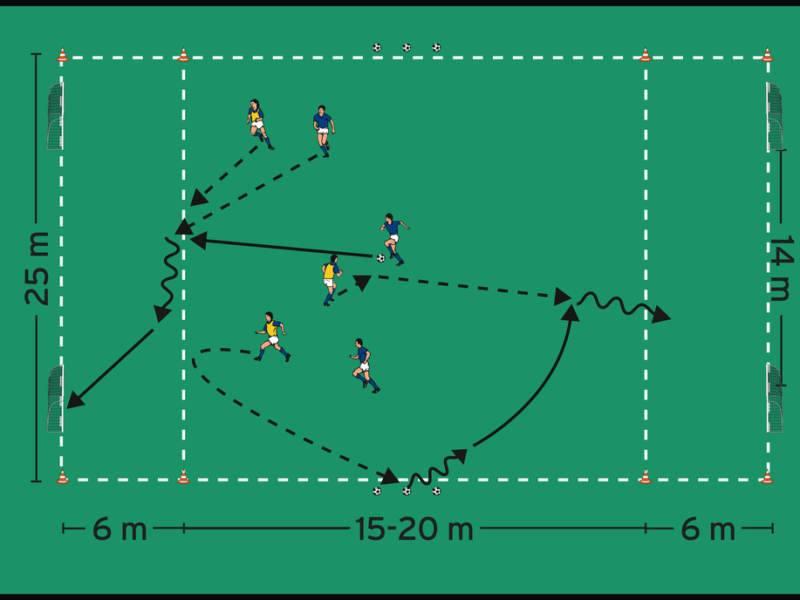The issue of playing time is one of the biggest frustrations in youth soccer. It’s a story almost every soccer parent and young athlete knows all too well: your child loves the game, works hard, and yet finds themselves on the bench most of the time for reasons often unclear.
It’s normal to feel irritated-knowing that your child might feel belittled and being the parent you want them to be given an opportunity to prove their talents.
It is so easy sometimes in that emotional state of mind to blame everything on the coach. Perhaps you suspect your child is not playing because some personal bias, or the coach just likes other kids more.
But the truth is this: yes, coaches might have favorites; most of the time, playing time is not about playing favorites but preparation, commitment, and team chemistry.
Fortunately, there are concrete workable steps your kid can take to get more minutes on the field.
This article will outline the roadmap necessary to give your child the best odds of earning more playing time.
1. Be Consistent, Be Punctual, and Be Present
The first rule of getting more playing time in soccer or in any sport is to show up. It may sound incredibly obvious, but attendance is everything. Coaches know who to rely on and who regularly comes to practice.
Better yet, they take note of who shows up on time.
Why it matters: Commitment is one of the first things that a coach takes into consideration when deciding which children deserve more playing time.
If your child regularly shows up to practice and does so on time, that says very clearly that they are committed to soccer and willing to work to become a better player.
Missing practices or showing up late says the opposite: that they’re not very committed, and that’s not a great thing for any coach to deal with.
Parent Pro Tip: Contribute to them developing excellent habits now by instilling within them the importance of managing their time.
Arriving early to practice 10-15 minutes gives them adequate time to start to warm up, work on developing goals for the session, and shows them that they are ready to go.
2. Put in the Work: Work Hard Every Day

Once your child has begun consistently attending practices, the next step is to ensure he or she is working hard each and every day.
Effort is something any coach can see immediately. It is not necessarily about raw talent; it is about how much a player is willing to push themselves and learn.
This can be done in practice by having your child try to master a certain skill, forcing the small things, and giving all of their effort in each drill.
Coaches reward players who hustle, chase down loose balls, and never give up on a play-even if it’s a scrimmage or training drill.
Why it matters: While technical abilities do come in handy, soccer is one of those sports that greatly rewards effort.
Coaches love players who show grit, determination, and a willingness to learn. Your child doesn’t have to be the most talented player on the team to get more minutes, but they certainly do need to show that they’re always improving and putting in maximum effort.
Pro Tip for Parents: Encourage your child to set a few minor goals for themselves for each practice.
Perhaps they want to concentrate on their first touch, having quicker decisions on the ball, or talking with their teammates more. These small goals will keep them motivated and give them a focal point for every session.
CHECK OUT | 7 Best Ways to Keep Your Soccer Kids Healthy
3. Be Coachable – Listen and Put Advice into Practice

One of the most valuable traits any young soccer player can have is to be coachable.
Coaches are looking for players who can take criticism and make changes based on what they have learned. It’s natural when a player is criticized that they may get defensive, but it’s important you teach your child that this type of feedback presents an opportunity to grow.
Why it matters: A coachable player listens and then uses the feedback.
When a coach asks them to improve their positioning, or pass more accurately, or to be aware of where they are defensively, they take comments on board. Demonstrating an ability to act on the feedback they get shows a desire to improve themselves.
Pro Tip for Parents: When your child receives feedback, he should ask the coach a question in response. It shows that he wants to learn more so he can get better.
An example would be, “Can you show me how I can improve my positioning during corner kicks?” This now opens up a dialogue that could bring added insight.
4. Communicate with the Coach

One of the least used methods for picking up more playing time is to have an honest conversation with the coach.
The thing is, sometimes players-even parents presume that playing time decisions are chiseled into stone. But in reality, most coaches appreciate a player who takes the initiative to ask him, “What can I do to get more playing time?”
Why it matters: This provides clarity to your child on which areas they need to work on.
Perhaps the coach feels your child does have potential, but they need to focus on their defense skills first before they can be trusted with more minutes on the field. That kind of feedback provides the child with something clear they need to work on to improve.
Pro Tip for Parents: Encourage your child to have this conversation themselves.
It shows maturity and initiative. And if the coach sees your child is taking his or her role serious and wanting to improve, they are more likely to reward that effort with playing time.
5. Be a Great Teammate: It’s Not Just About Individual Performance

Soccer is a team sport, and while individual skills are important, coaches appreciate players who make the team better. Being a great teammate involves more than just performing well in drills; it is about uplifting your peers, being clear in communication, and showing sportsmanship.
Why it matters: Coaches always like to see how kids interact with their teammates.
Does your child try to support their friends when they make a mistake? Are they calling out on the field to help organize the group? Can they accept various roles when needed?
Being a good teammate signals to the coach that this is someone they can be sure to help them establish a good team dynamic.
Pro Tip for Parents: Teach your child about leadership on and off the field.
They may not have to be the most outspoken or vocal player, but leading through example, as outlined by effort, attitude, and support from their teammates will set them apart from others.
CHECK OUT | How Do You Travel for Soccer Games in the USA? A Practical Guide for Parents
6. Learn the Game Inside and Out
Whereas one might think that soccer is all about the fastest runner or the most forceful kick, it’s also very much a strategy game.
Coaches prize players with high soccer IQ-that is, an intuitive understanding of the subtleties of the game, the ability to read plays before they unfold, and knowing how to make smart decisions under pressure.
Why it matters: The best players aren’t always the fastest or strongest; they’re the ones that think two steps ahead.
A player who views the game with a high soccer IQ knows when to pass, when to shoot, and when to press defensively. If your child can demonstrate that they have a good sense of the game, they’re much more apt to be trusted with more playing time.
Pro Tip for Parents: Develop your child’s soccer IQ with them as you watch professional games. Ask them, “What would you do in this situation?” or “Why do you think he made that pass?”
It will get them to start thinking critically about the game and making more educated decisions on the field.
7. Patience and Persistence Pay Off

Well, playing time is one of those things that’s a process.
Sometimes it doesn’t happen right away and that’s okay. Kids get frustrated too many times when it doesn’t come right away, but it’s huge to stay positive and trust the process.
Why it matters: Coaches also like kids who can maintain a positive attitude even when things don’t go their way. Players continue to work, remain upbeat, and demonstrate resilience-even when playing time is limited-and that reflects toughness on the part of the mind.
These are terrific attributes in young athletes that coaches like to see.
Parent Pro Tip: Be your child’s biggest cheerleader, not only when they start, but most importantly when they are not getting the playing time they feel they deserve.
Continue to remind them to work hard and stay positive; that way, the effort and perseverance will pay off in due time.



